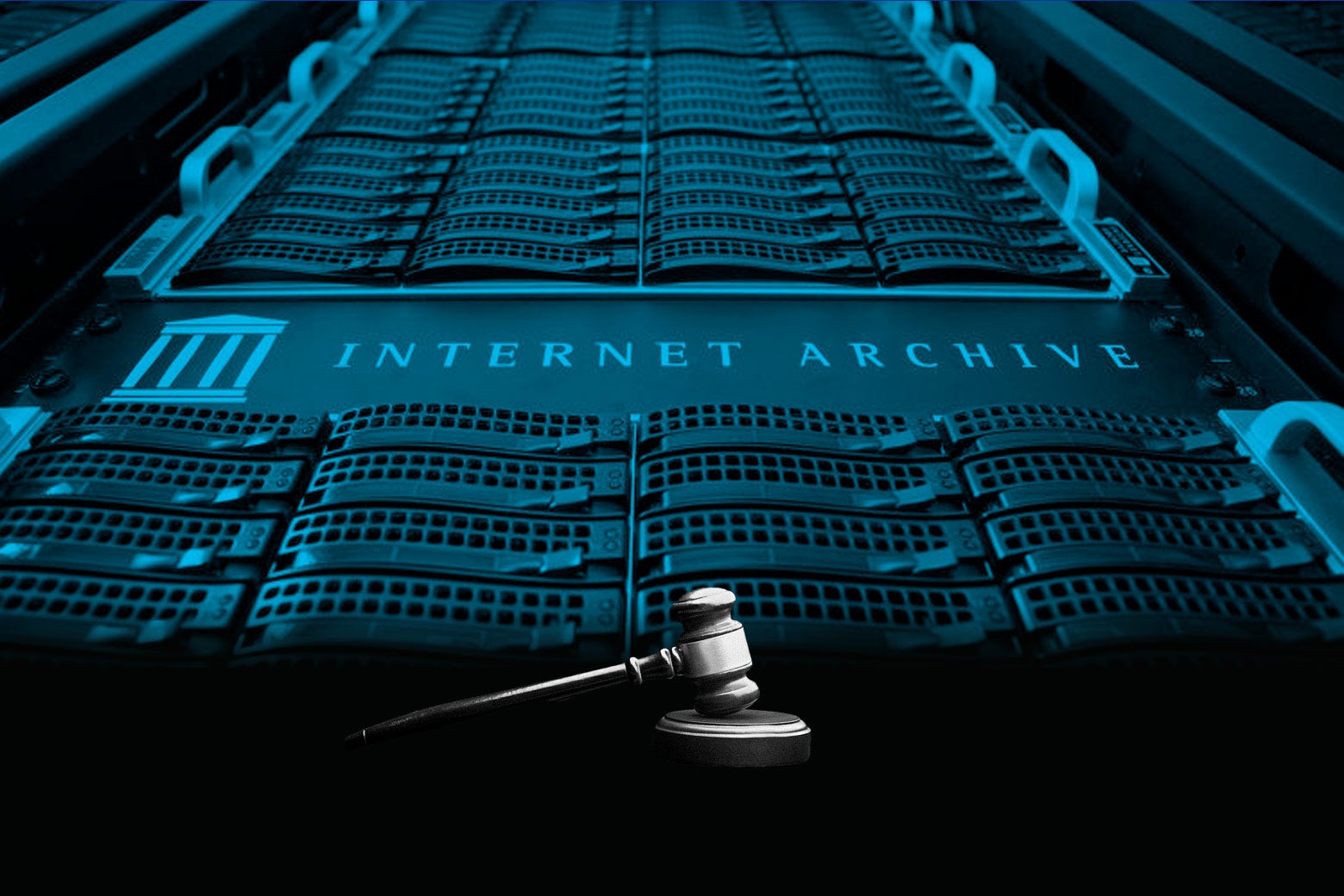Sony, Universal Music Group and 4 other Music Labels Sue Non-Profit Internet Archive for Wholesale Theft
Sony and 5 other music labels sue non-profit internet archive for wholesale theft of copyrighted songs demanding $372 in legal damages.

Sony, Universal Music Group and 4 other Music Labels Sue Non-Profit Internet Archive for Wholesale Theft
A group of well-known record labels, including Universal Music Group, Sony Music Entertainment, and others, have launched a lawsuit against the nonprofit Internet Archive for alleged copyright violations. The “Great 78 Project” of the Archive is accused in the case of posting and streaming copyright-protected music without authorization, thus acting as a “illegal record store,” in a federal court in Manhattan. Famous performers whose works have been reported to have been violated include Frank Sinatra, Ella Fitzgerald, Miles Davis, as well as Billie Holiday, amongst others.
Illegal Record Store Allegations
The Internet Archive’s “Great 78 Project,” that seeks to digitize and make available vintage 78-rpm records spanning the beginning of the nineteenth century to the 1950s, lies at the center of the complaint. The record companies contend that the initiative is nothing more than a cover for copyright infringement, notwithstanding the Archive’s claims that its goal is to provide universal access to knowledge similar to a library. The labels have located 2,749 instances of alleged copyright violations of sound recordings that they claim the Archive has committed, spanning a variety of musical genres.
Damages and Copyright Violations
Significant legal action is being sought by the plaintiffs against the Internet Archive. They are asking the court to order that all copyrighted content be purged from the Archive’s holdings. Additionally, they are asking for $150,000 in damages for each work that has been infringed upon. With 2,749 listed recordings, the potential losses might reach a startling $372 million.

Internet Archive’s Response
As of now, representatives of the Internet Archive have not provided a response to the case. However, it is expected that the organization will put forward a defence in due course of time.
Context and Legal Framework
The court case takes place against the backdrop of the Music Modernization Act, which was passed by the US Congress in 2018. The copyright protection for music released before 1972 was extended by this legislation until 2067. Older music recordings are now subject to stricter copyright protection, which is a key component of the record labels’ complaints against the Internet Archive.
Ongoing Legal Challenges Against Internet Archive
This is not the first legal challenge that the Internet Archive is facing. The organization is already entangled in another federal lawsuit in Manhattan. Leading book publishers have claimed that the Archive’s digital book lending program violates and infringes upon their copyrights. A judge ruled in favor of the publishers in March, a decision that the Archive is planning to appeal.

Altruistic Intentions or Copyright Infringement?
The record labels’ lawsuit claims that the Archive’s ostensibly charitable motivations are really a “smokescreen” to conceal their alleged violation. The copyrighted tracks, according to the labels’ legal experts, are already available for lawful streaming or downloading from authorized platforms offered by the record companies themselves. The labels contend that there is no danger of these recordings getting lost, left behind, or wiped out, calling the Archive’s reasoning for their actions into question.
Sony Music Entertainment has been joined in its legal struggle against the Internet Archive by other significant stakeholders in the music industry. Among those suing are UMG Recordings, Capitol Records, Concord Bicycle Assets, CMGI Recorded Music Assets, as well as Arista Music.
The verdict in this case will have a significant impact on how digital archives, copyright defence, and historical preservation are intertwined in the digital era. As the legal dispute progresses, important problems regarding the boundaries of fair use, the function of charitable organizations, and the obligations of protecting historical relics while upholding intellectual property rights are brought up.
The record companies assert that, despite the Internet Archive’s portrayal of itself as a digital library with the lofty goal of ensuring everyone has access to knowledge, the “Great 78 Project” actually serves as an unlicensed platform for streaming music that is protected by copyright. This conflict highlights the difficulties in balancing the rights of copyright holders with the interests of the general public in accessing and safeguarding cultural assets.
The altering landscape of copyright law is at the heart of the issue, as evidenced by the Music Modernization Act‘s broader application of copyright protection to pre-1972 music. This addendum emphasizes the notion that historical works have worth and deserve to be protected in the digital age. The record companies’ claim for significant damages reflects the music industry’s commitment to protect copyright rights in an emerging market where digital content distribution has become the standard.
The complaint additionally brings up a broader question about charitable organizations’ aim as well as intent. While the Internet Archive aims to provide access to a diverse range of historical items, which includes books and recordings, its strategy for dealing with copyrighted information has sparked controversy. This decision raises questions about whether good intentions can be used to defend against copyright infringement claims as well as whether charitable organizations should be subject to different rules when it comes to protecting intellectual property.
The continuous legal battles over digital content in numerous businesses are mirrored in the case against the Internet Archive, which is not a unique incident. The case demonstrates the wider effects of digitization and accessibility on copyright owners, as shown by the Archive’s concurrent legal challenge from book publishers. Furthermore, it highlights the possible need for legal clarification about how digital archives, in particular the ones with nonprofit status, interact with the intellectual property and copyright laws.
As the lawsuit unfolds, it is expected to add to the continuing discussion about copyright reform, fair use, as well as the duties of both creators of content and the preservationists in the world of digital media as it progresses. The findings are expected to have an impact on the activities of digital archives, organizations, and copyright holders, possibly paving the way for an increased understanding of what it takes to strike a balance between preservation and protection in the increasingly linked world of digital content.





